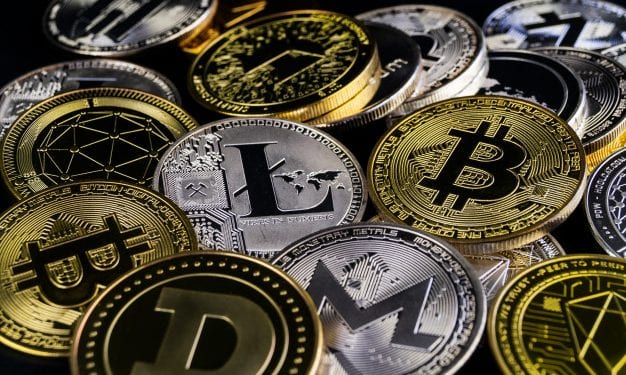Cryptocurrencies have been around for over a decade now, and for much of that time proponents have been referring to it as “a new form of money”. While the currency status of this or that asset can be debated, it is true that decentralized systems have created a means for digital transfer of value.
This unto itself is revolutionary and paves the way for brand new means of payment through the internet, but there’s so much more that is possible. It isn’t just the assets themselves that are innovative, but also the methods of transferring them, as well as the financial systems and tools that can be built on top of them. These can include bringing banking and investment services to millions of people worldwide who currently go without, reducing fees for online payments, and bringing about a more equal economic playing field. All of this is either possible today or coming in the very near future, and is powered by distributed ledger systems.
Our current financial system
It could be said that it already feels like we’re living in a digital money system. Platforms like Venmo, Revolut and the like mean that users can transfer funds “digitally” using just their mobile device. However, there’s a problem. Current financial platforms are all still built around legacy systems. They may have fancy digital interfaces, but behind the scenes money is moving in much the same way as it always has been, with slow resolution times and high fees.
It’s in fact due to these high fees for processing money that there are still so many in the world who are left out from current banking options. These fees are almost inevitable because of the high overhead on running banks, verifying transfers, performing security audits and the like. Traditionally, handling and securing money is quite expensive, but it doesn’t have to be this way.
Digital assets can change this
Enter the new world of digital assets. Thanks to the benefits afforded by blockchain technology, this new asset class can fundamentally change the way the world interacts with money. This is largely due to the fact that transfers of these currencies can be performed globally much faster and cheaper than anything that the traditional financial system can offer.
This stands to offer several important benefits for consumers. One is the ability to now bring banking services to millions of people worldwide who otherwise would have no access. Now, all someone needs is an internet-enabled mobile device, and they can send and receive money, make payments, and even have access to more complex financial tools. This update to the underlying infrastructure stands to bring a new level of value to simply owning a cellular phone, for example.
Just look at the current state of retail investing. While there are already some “retail friendly” investment apps out there, such as Robinhood and eToro, the potential exists for these and other platforms to become increasingly frictionless and affordable to virtually anyone. It isn’t just the potential for things like tokenized fractional commodities, it’s also the fact that fees on these trades would be miniscule, and traders could have full custodial control over all of their assets.
Going even further
Then there’s the more complex world of Decentralized Finance. Virtually every financial service including loans, borrowing and insurance are becoming available on platforms that anybody can participate in. Thanks to a growing ecosystem of interest earning platforms, individuals can store their stablecoins (and in the future, their Central Bank Digital Currencies) or other assets in a variety of accounts that can earn them upwards of 8% interest annually or more, a rate which blows most traditional services out of the water. These services are offered by regulated companies in the US, to the entire globe.
We also can’t ignore the global payments industry and payment service providers (PSPs). As mentioned, handling money is costly. This expense is then of course factored into the fees that come with using their system, and ultimately pushed onto consumers. However, with distributed ledger technology, the whole process can be automated with code. What are called “smart contracts” can be used to cross reference transaction histories, verify identities, enforce regulatory compliance, and many other functions currently handled by PSPs. This means that everyone from the little guy to the companies themselves can save money and have a smoother, faster and much cheaper process along the way.
A greater global balance
Ultimately, it is this type of increase in access and flexibility, powered by technological development, that stands to bring a new, more level playing field to people all over the world. This stands to both reduce systemic inequality, as well as enhance social mobility. So many of the financial roadblocks that have historically been present for millions worldwide will now be gradually coming down.
While it is too early to say exactly all the ways this will revolutionize peoples’ lives, it looks to be a huge step forward in providing access to a greater range of options to more people than ever before. The same way that if you were asked back in 1995 what the Internet would be used for, you could not have thought of Twitter, Zoom, LinkedIn, Instagram or any other service we take for granted today. Clearly, this marks a transition that is more fundamental and powerful than just a new form of “money.” Cryptocurrency may have been the first step, but decentralized financial systems stand to change the very way the human race interacts with value and, by extension, the way we interact with each other.











